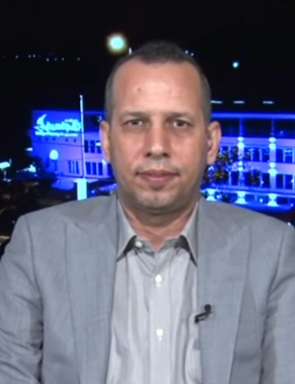 |
|---|
|
| Constitution |
Parliamentary elections were held in Iraq on 4 August 1935 to elect the members of the Chamber of Deputies. [1]
 |
|---|
|
| Constitution |
Parliamentary elections were held in Iraq on 4 August 1935 to elect the members of the Chamber of Deputies. [1]
The elections occurred during a period of turmoil and tribal revolts against the government in the mid-Euphrates and southern regions. [2] [3] The revolt was partly attributed to the lack of governmental and parliamentary representation of the Shia tribes in the troubled regions. [4] [5]
The number of seats in parliament was increased from 88 to 108 due to the significant increase in the population since 1925. [2] [3] [6] The government recognised the southern tribes' resentment and helped electing some of the tribes' leaders. [4] The new parliament also had a higher number of journalists. [2] [3] [6] The Party of National Brotherhood led by incumbent Prime Minister Yasin al-Hashimi won a majority of seats. [3] [7] [8]
Al-Hashimi, who adopted strong nationalist policies, had strong support in the new parliament; he remained Prime Minister until his government was overthrown by a military coup led by general Bakr Sidqi in 1936. [2] [3] [6] After the coup, Hikmat Sulayman, a former member of the Party of National Brotherhood, was made Prime Minister by the coup's military leader.

Bakr Sidqi al-Askari was an Iraqi general of Kurdish origin, born in 1890 and assassinated on 11 August 1937, in Mosul.

The Hashemite Kingdom of Iraq was a state located in the Middle East from 1932 to 1958.
The Baghdad Conservatory is a music conservatory in Baghdad, Iraq. Hanna Petros founded the institution in 1936.

Iraqi Revolutionary Communists was the name of an Iraqi political organization, founded in 1973. The group was formed as a split from the Revolutionary Committee of the Iraqi Communist Party led by Salim al-Fakhri. The group was led by Tahsin Ali Ash-Shaikhli.

Sayyid Muhammad Hasan al-Sadr was an Iraqi Shi'ite statesman. He served as Prime Minister of Iraq from 29 January 1948 to 26 June 1948.
The 1936 Iraqi coup d'état, also known as the Bakr Sidqi coup, was initiated by general Bakr Sidqi in order to overthrow Prime Minister Yasin al-Hashimi of the Kingdom of Iraq. The coup succeeded in installing Sidqi's ally Hikmat Sulayman as the new Prime Minister, while Sidqi was de facto ruler of Iraq as powerful Chief of Staff. Bakr Sidqi's reign would be short; he was assassinated the next year in Mosul, and Sulayman was obliged to resign his post.

Parliamentary elections were held in Iraq on 20 October 1930 to elect the members of the Chamber of Deputies. For every twenty thousand male citizens, one Member of Parliament was elected to the Chamber of Deputies (Majlis an-Nuwwab), the dominant chamber of Parliament over the Senate. It was the third election since the establishment of the parliament.

Hisham al-Hashimi was an Iraqi historian and researcher in security and strategic affairs and extremist groups, and a specialist on the subject of the Islamic State and its supporters. He also was an advisor to the Iraqi government on counter-terrorism.
Elections to a Constituent Assembly were held in Iraq between 24 October 1922 and 25 February 1924, electing the country's first parliament. The Constituent Assembly was elected to draft a constitution, legislate a law for general elections, and ratify the Anglo-Iraqi Treaty of 1922.
Parliamentary elections were held in Iraq in 1925, the first under the 1925 constitution. After the elections, Abdul-Muhsin Al-Saadoun became Prime Minister for the second time and founded the Progress Party to support the government and gain a parliamentary majority.
Parliamentary elections were held in Iraq in 1933 to elect the members of the Chamber of Deputies. Although the Government Bloc led by incumbent Prime Minister Naji Shawkat won the most seats, it quickly disintegrated after the elections, allowing Rashid Ali al-Gaylani to become Prime Minister.
The Liberal Party was an Iraqi political party that was founded in 1946. Tawfiq al-Suwaidi was elected as chairman. The party sought to reform the electoral system, consolidate democracy, improve representation, and reform and modernize the country's administration. The party had great influence in rural Iraq, and it allied with the National Democratic Party. It adopted a moderate stance and supported the Iraqi monarchy. It published the Liberals' Voice newspaper.
Parliamentary elections were held in Iraq on 6 December 1934 to elect the members of the Chamber of Deputies.

Parliamentary elections were held in Iraq between 10 December 1936 and 20 February 1937 to elect the members of Chamber of Deputies of Iraq.
Parliamentary elections were held in Iraq on 18 December 1937 to elect the members of Chamber of Deputies.
Parliamentary elections were held in Iraq on 29 April 1939 to elect the members of the Chamber of Deputies.
Parliamentary elections were held in Iraq between 21 November 1946 and 10 March 1947 to elect the members of the Chamber of Deputies.

A referendum was held in Mandatory Iraq between 16 July and 11 August 1921 to determine the form of government and head of state.

Balad Sport Club, is an Iraqi football team based in Balad District, Saladin, that plays in the Iraqi Second Division League.
Laith Shubbar is an Iraqi academic and politician. He was an advisor of the Iraqi Prime Minister and opposed to quotas and sectarianism. He earned his doctorate in 1999 and has held many political and media positions.